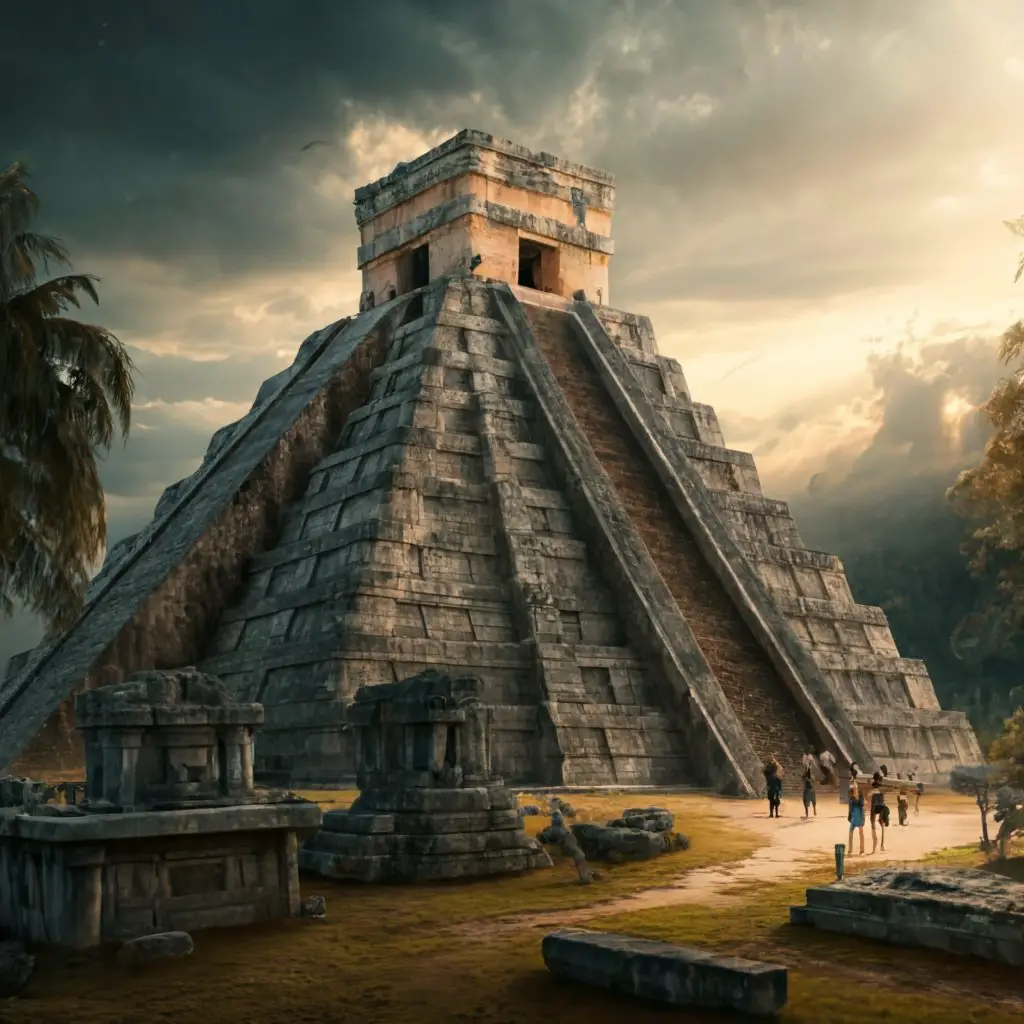The Maya civilization, flourishing between 2000 BCE and 1500 CE, fostered a cultural renaissance that has left an indelible mark on world history.
Renowned for their intricate hieroglyphic writing and magnificent art, the Maya crafted masterpieces that depicted their cosmology, mythology, and daily life. This cultural sophistication has made them a cornerstone in the broader narrative of human artistic achievement.

The Maya’s profound understanding of astronomy and mathematics is one of their most enduring legacies. Developing an elaborate calendrical system, the Maya tracked celestial events with unparalleled accuracy.
Their intricate knowledge of the cosmos not only aided in agricultural practices but also positioned them as pioneers in celestial observation, contributing to the broader scientific understanding of our universe.
Maya cities, with their towering pyramids, expansive plazas, and intricate temple complexes, stand as testaments to architectural ingenuity.
The precision with which they aligned their structures with celestial phenomena reflects a deep connection between the built environment and religious beliefs.
These architectural marvels, such as those found in Tikal and Copán, highlight the Maya’s ability to shape the physical world in harmony with their spiritual worldview.
The Maya’s success in sustaining large populations was grounded in their innovative agricultural practices.
Terrace farming in the highlands and raised fields in the lowlands allowed them to cultivate staple crops efficiently.
This agricultural prowess not only supported their cities but also enabled the growth of a complex society sustained by surplus food production.
The Maya’s political structure, characterized by independent city-states, challenges traditional notions of centralized governance.
Each city-state had its ruler and distinct political organization, fostering a complex network of relationships. This decentralized structure contributed to the resilience of the civilization, even in the face of challenges.
The Maya civilization’s significance in world history is profound and multifaceted. From their advancements in science and mathematics to their architectural marvels and cultural achievements, the Maya have left an enduring legacy that transcends time and borders.
By unraveling the intricacies of their civilization, we gain not only a deeper understanding of the Maya people but also an appreciation for their lasting impact on the broader narrative of human history.